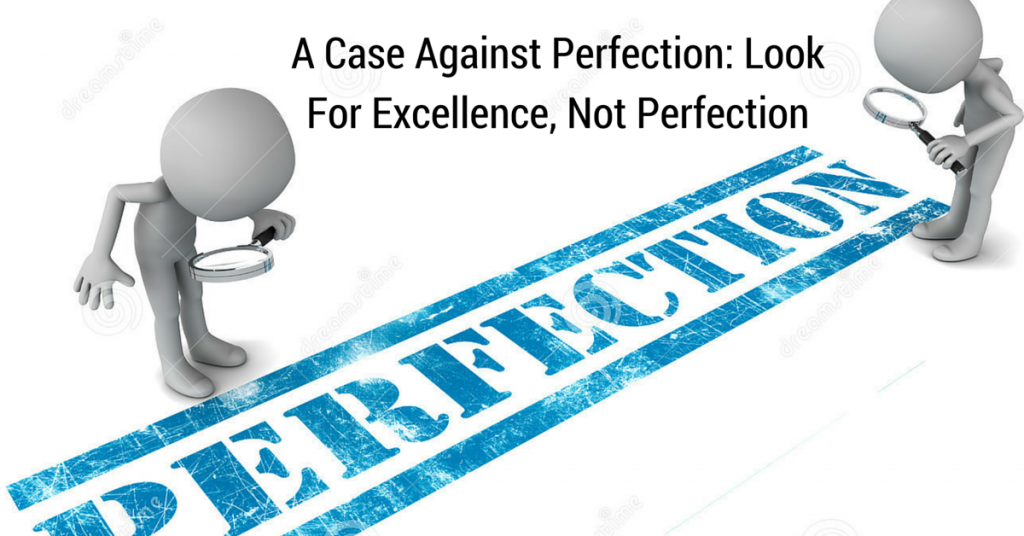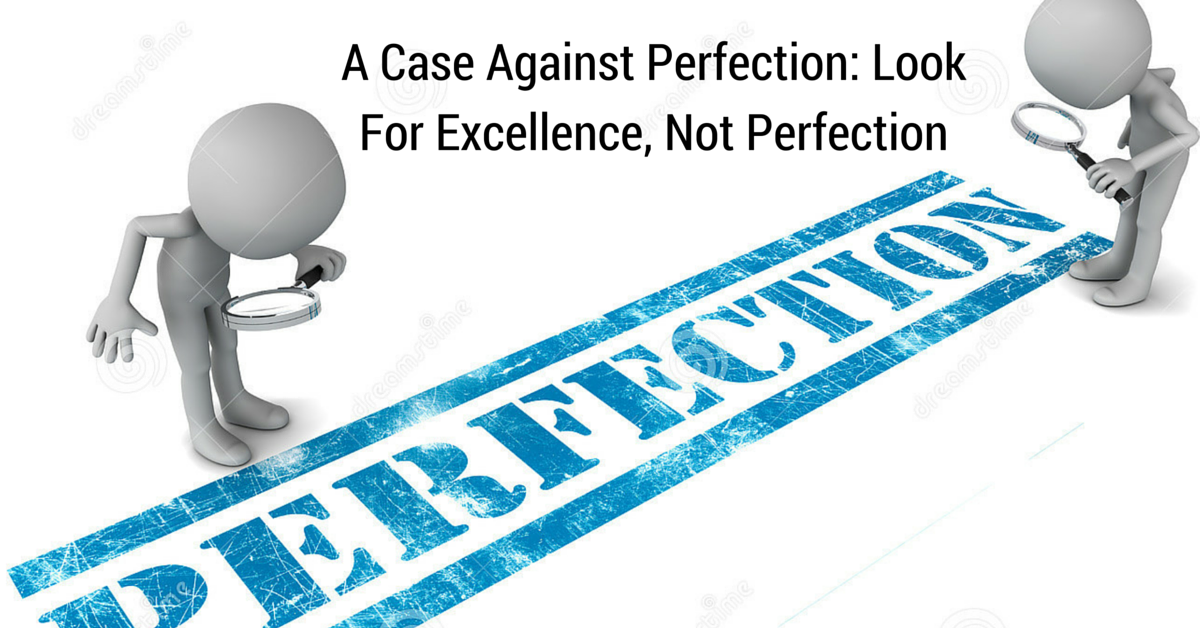
Why should you not be perfect?
Because excellence is often enough, and perfection is a futile quest, and idle pursuit.
Because in the run to become perfect when you are already excellent, you miss out on small pleasures in life as you get busy in search of elusive perfection.
Because idea of perfection sometimes get in the way of good imagination as to how the imperfection itself has utility.
Because sometimes the marginal return on being even more better is really low and does not justify the effort put in to improve.
Because your efforts to be perfect in one aspect of your life takes up inordinate time and does not let you focus on some other important aspects of life.
Because you take more time and spend more resources than actually necessary to do a thing because you want it to be perfect.
Life can become stagnant in search of perfection. Rather, enjoy every moment in life, strive towards excellence but not perfection.
Excellence gives you an incentive to work, to strive further, to be better, while perfection acts as an inhibition – “what if it’s not perfect?”
Perfection is almost always uncalled for – rarely one is required to be perfect or do things perfectly. The gap between excellent and perfect is narrow in the first glance, but to bridge that narrow gap – usually resources are consumed in a very inefficient manner.
Search for perfection is good as a hobby, not as a profession, or method of operation. Perfection is too costly, too inefficient when it comes to commercial causes or day-to-day affairs.
Think of an excellent watch – you can find one cheap. It will give correct time to the second. Think of a perfect watch – that gives correct time to one-millionth of a second. Apart from the fact that it is difficult to make such a watch and that it must be very costly – this perfect watch is hardly any better in usability – unless you are recording results of your experiments on an atomic reactor or putting it to some similarly obscure use.
It has been seen that if one knows 2000 most common words in The Spanish language, they can understand 80% of any average conversation in Spanish. Identifying those words and learning them will give you the excellent and efficient result. Perfection will need you to learn 500,000 Spanish words. That is often the difference between excellence and perfection – of efficiency.
Use what talent you possess; the woods would be very silent if no birds sang except those that sang best.
~Henry van Dyke
 Serato DJ Crack 2025Serato DJ PRO Crack
Serato DJ Crack 2025Serato DJ PRO Crack








 Allow notifications
Allow notifications


